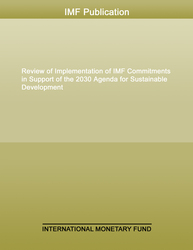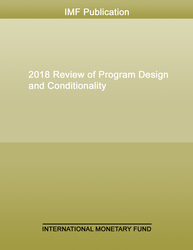
Energy Subsidy Reform - Lessons and Implications
Energy subsidies have wide-ranging economic consequences.
READ MORE...
Volume/Issue:
Volume 2013
Issue 004
Publication date:
ISBN:
Add to Cart by clicking price of the language and format you'd like to purchase
Available Languages and Formats
Topics covered in this book
This title contains information about the following subjects.
Click on a subject if you would like to see other titles with the same subjects.
Inflation , Economics- Macroeconomics , Public Finance , PP , subsidy reform , energy subsidy , consumer subsidy , energy price , benchmark price , exchange rate , price increase , reform episode , producer subsidy , reform strategy , transfer program , Energy subsidies , Energy pricing , Inflation , Energy prices , Fuel prices , Global , Sub-Saharan Africa , North Africa , East Africa , Africa
Summary
Energy subsidies have wide-ranging economic consequences. While aimed at protecting consumers, subsidies aggravate fiscal imbalances, crowd-out priority public spending, and depress private investment, including in the energy sector. Subsidies also distort resource allocation by encouraging excessive energy consumption, artificially promoting capital-intensive industries, reducing incentives for investment in renewable energy, and accelerating the depletion of natural resources. Most subsidy benefits are captured by higher-income households, reinforcing inequality. Even future generations are affected through the damaging effects of increased energy consumption on global warming. This paper provides: (i) the most comprehensive estimates of energy subsidies currently available for 176 countries; and (ii) an analysis of ?how to do energy subsidy reform, drawing on insights from 22 country case studies undertaken by IMF staff and analyses carried out by other institutions.
Copyright © 2010 - 2026
Powered by:
AIDC



